
Tamuning: The Heartbeat of Tumon, Guam
Nestled in the central region of Guam, Tamuning is a vibrant neighborhood that serves as a gateway to the island's most stunning attractions. This bustling area combines the charm of local culture with the convenience of modern amenities, making it a must-visit destination for travelers. Tamuning is home to the famous Tumon Bay, where crystal-clear waters and pristine beaches await. The bay is perfect for water activities like snorkeling, jet skiing, and paddleboarding. Along the shoreline, you'll find an array of luxury resorts, each offering breathtaking ocean views and top-notch services. For those interested in shopping and dining, Tamuning does not disappoint. The area boasts several shopping centers such as the Guam Premier Outlets, where you can find everything from high-end fashion to local crafts. Food enthusiasts will relish the variety of dining options, ranging from traditional Chamorro cuisine to international fare. Cultural experiences are also abundant in Tamuning. Visit the Plaza de España, a historical site that offers a glimpse into Guam's colonial past. For a more modern cultural experience, the local theaters and art galleries provide a platform for contemporary island artists to showcase their work. Whether you're looking to relax on the beach, indulge in retail therapy, or immerse yourself in local culture, Tamuning offers a well-rounded experience for every traveler.
Local tips in Tamuning
- Visit Tumon Bay early in the morning to avoid crowds and enjoy the serene beauty.
- Wear comfortable shoes as Tamuning is best explored on foot.
- Check out the local night markets for unique souvenirs and delicious street food.
- Public transportation is limited; consider renting a car for convenience.
- Bring reef-safe sunscreen to protect Guam's delicate marine life.
Tamuning: The Heartbeat of Tumon, Guam
Nestled in the central region of Guam, Tamuning is a vibrant neighborhood that serves as a gateway to the island's most stunning attractions. This bustling area combines the charm of local culture with the convenience of modern amenities, making it a must-visit destination for travelers. Tamuning is home to the famous Tumon Bay, where crystal-clear waters and pristine beaches await. The bay is perfect for water activities like snorkeling, jet skiing, and paddleboarding. Along the shoreline, you'll find an array of luxury resorts, each offering breathtaking ocean views and top-notch services. For those interested in shopping and dining, Tamuning does not disappoint. The area boasts several shopping centers such as the Guam Premier Outlets, where you can find everything from high-end fashion to local crafts. Food enthusiasts will relish the variety of dining options, ranging from traditional Chamorro cuisine to international fare. Cultural experiences are also abundant in Tamuning. Visit the Plaza de España, a historical site that offers a glimpse into Guam's colonial past. For a more modern cultural experience, the local theaters and art galleries provide a platform for contemporary island artists to showcase their work. Whether you're looking to relax on the beach, indulge in retail therapy, or immerse yourself in local culture, Tamuning offers a well-rounded experience for every traveler.
Iconic landmarks you can’t miss
Two Lover’s Point
Experience breathtaking views and romantic legends at Two Lover's Point, a must-see attraction in Guam with stunning ocean vistas and lush surroundings.
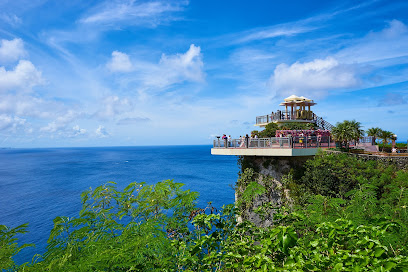
Ypao Beach
Discover the beauty of Ypao Beach in Guam, where soft sands and crystal-clear waters create the perfect tropical getaway.
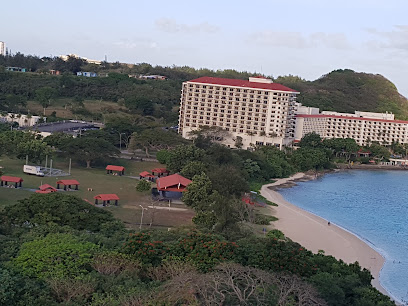
Tumon Beach
Experience the beauty of Tumon Beach in Guam, where white sands meet clear waters for the perfect tropical getaway.
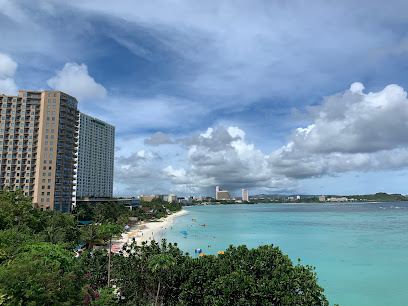
Aquarium of Guam
Explore the captivating marine world at the Aquarium of Guam, a top tourist attraction showcasing Pacific Ocean biodiversity and conservation.
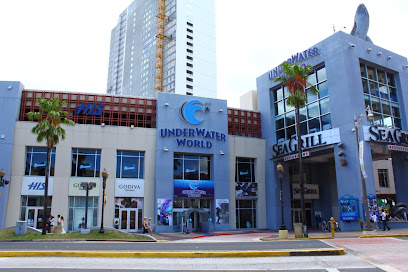
Olive Garden Italian Restaurant
Experience authentic Italian cuisine at Olive Garden, a family-friendly restaurant in Guam, offering a delightful menu and warm hospitality.
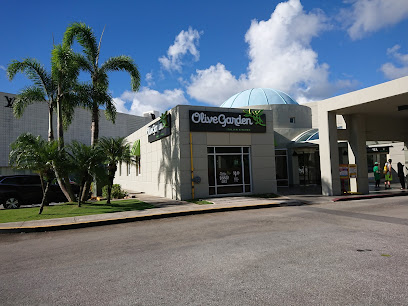
Fujita Beach
Discover the pristine beauty and vibrant marine life at Fujita Beach, Tumon's perfect spot for relaxation and water adventure.
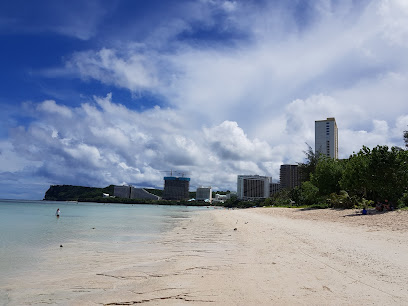
Days Inn by Wyndham Guam Tamuning
Experience the comfort and convenience at Days Inn by Wyndham Guam Tamuning, ideal for discovering the beauty of Guam's beaches and cultural attractions.
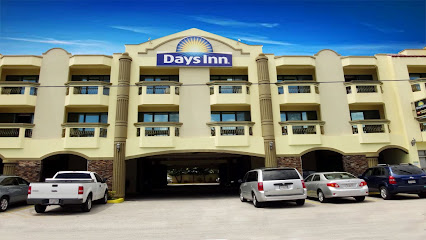
McDonald's
Enjoy a taste of home with McDonald's in Tamuning, Guam, offering fast food favorites in a welcoming and convenient atmosphere.
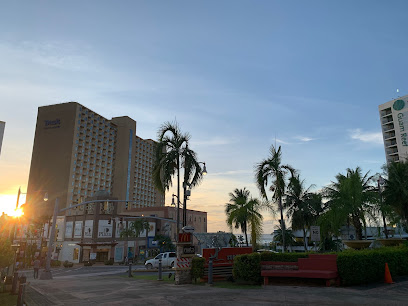
Crystal Chapel
Experience the serene beauty of Crystal Chapel, a breathtaking tourist attraction in Tumon, Guam, where stunning ocean views meet tranquil elegance.
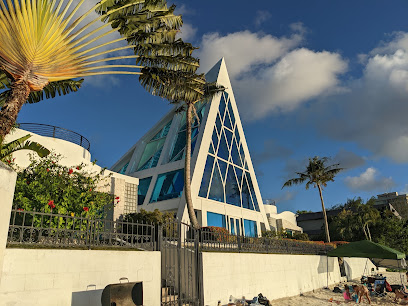
Archbishop Felixberto Flores Memorial Circle
Explore the serene beauty of Archbishop Felixberto Flores Memorial Circle, a cultural landmark in Oka, Guam, perfect for relaxation and reflection.
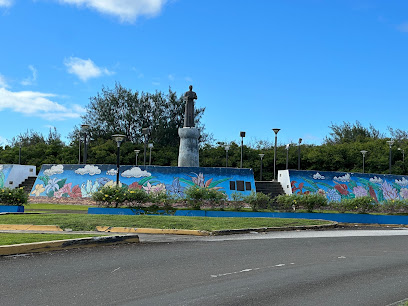
Ancestral Chamoru reburial monument
Explore the Ancestral Chamoru Reburial Monument in Tumon, a historical landmark honoring Guam's rich heritage and cultural identity.
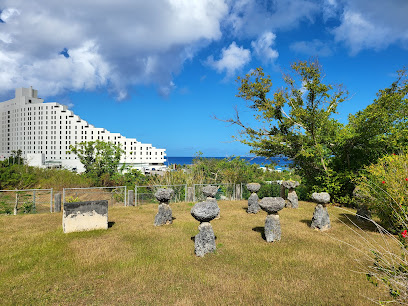
Unmissable attractions to see
Taotao Tasi Guam
Experience Guam's #1 island show with a dazzling beachfront dinner, cultural performances, and fire dancers at TaoTao Tasi on Gun Beach.
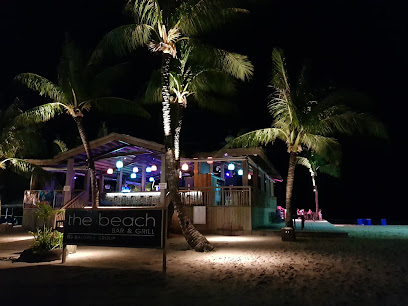
Ride the Ducks Guam
Ride the Ducks Guam: Experience the thrill of an amphibious adventure that takes you through the island's stunning landscapes and into the sparkling sea.
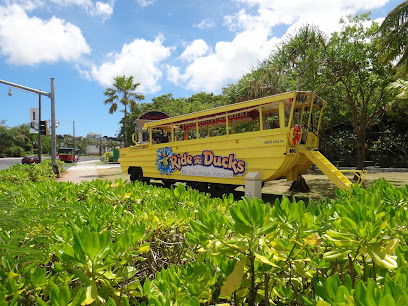
Chinese Park
Discover a serene escape at Chinese Park in Tumon, Guam. Experience cultural richness, tranquil gardens, and stunning bay views.
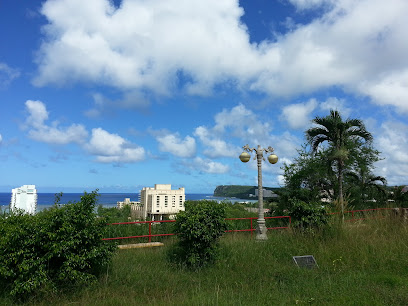
I Love Guam 圖騰
Capture the spirit of Guam at this colorful roadside mural, a perfect photo stop blending iconic design with local Chamorro culture.
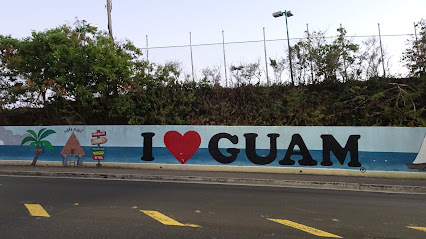
Oka Cliff
Discover breathtaking ocean views and serene beauty at Oka Cliff, a must-visit natural landmark on Guam's stunning coastline.
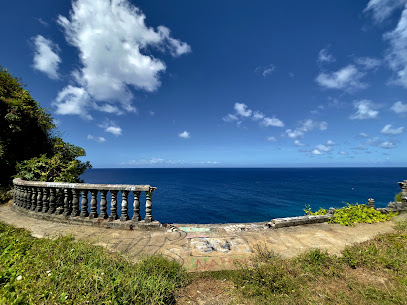
Essential places to dine
California Pizza Kitchen Tumon
Discover the flavors of America at California Pizza Kitchen Tumon – where family dining meets delicious pizza perfection.
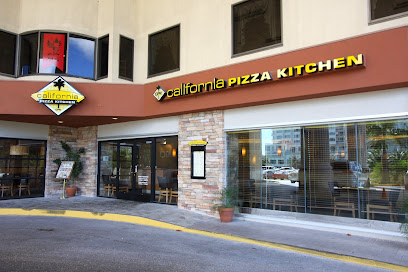
Tony Roma's
Experience the best of American cuisine at Tony Roma's in Guam – indulge in delicious barbecue, seafood specialties, and more!
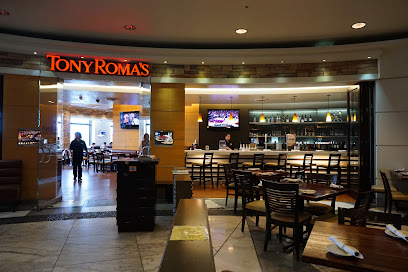
Eat Street Grill
Experience delectable grilled dishes at Eat Street Grill in Tumon, Guam – where culinary delight meets a vibrant atmosphere.
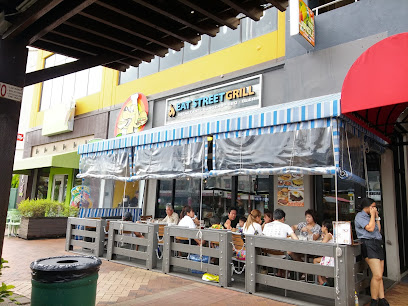
Palm Cafe
Experience the best of local and international cuisine with stunning ocean views at Palm Cafe in Tumon Bay.
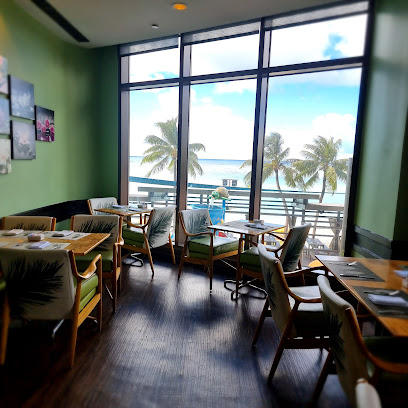
Fusion tavern
Discover Fusion Tavern in Tumon - where Asian flavors meet modern culinary creativity in an inviting atmosphere.
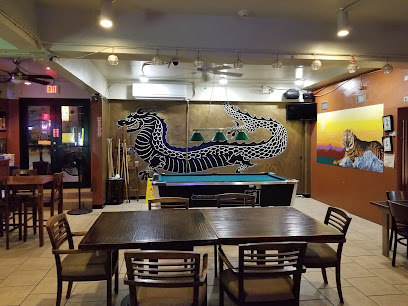
maru restaurant
Discover the vibrant flavors of Guam at Maru Restaurant - where eclectic cuisine meets an inviting atmosphere.
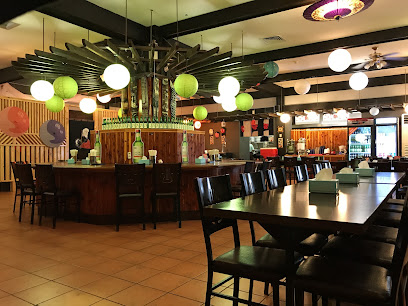
Al Dente Ristorante
Experience authentic Italian cuisine at Al Dente Ristorante in Tumon - where every meal feels like a trip to Italy.
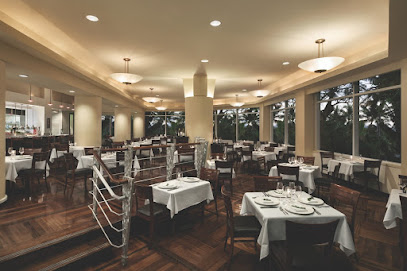
LYT Restaurant Bar
Experience culinary excellence at LYT Restaurant Bar in Tumon - where Asian fusion meets vibrant nightlife.
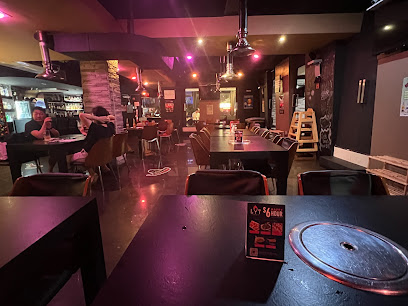
Breezes
Discover Breezes in Guam: A restaurant offering fresh local cuisine and stunning ocean views perfect for tourists seeking relaxation.
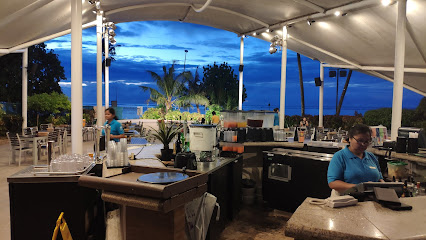
IHOP tumon
Experience the ultimate brunch destination at IHOP Tumon in Guam, where delicious comfort food meets friendly service.
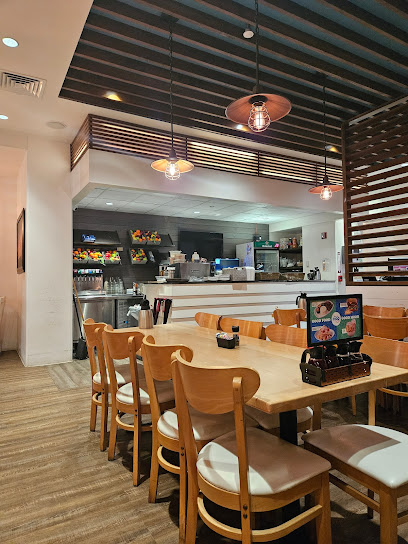
Markets, malls and hidden boutiques
T Galleria By DFS, Guam
Discover luxury shopping at T Galleria By DFS in Guam, featuring duty-free prices on your favorite brands and unique local finds.
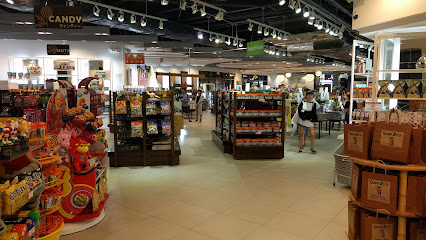
Stussy
Discover the iconic Stussy clothing store in Tumon Bay, offering a unique blend of streetwear and island vibes for the ultimate shopping experience.
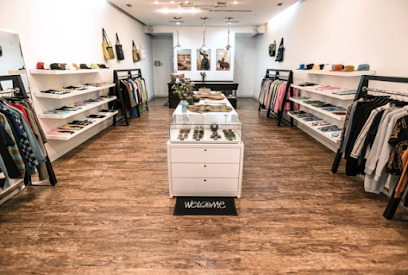
GIFT GUAM
Discover the essence of Guam through unique souvenirs and local crafts at Gift Guam, a must-visit gift shop in Tumon.
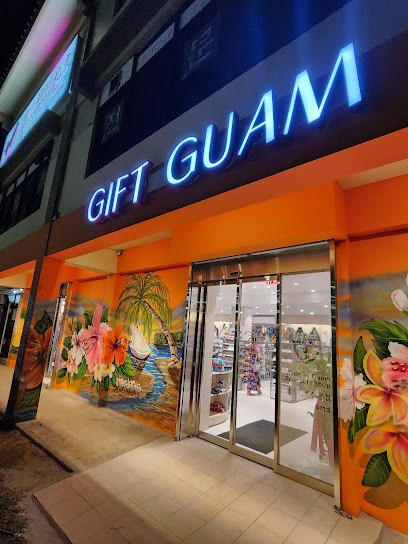
Smart Town
Explore Smart Town in Upper Tumon for unique gifts, local crafts, and a vibrant shopping experience that captures the essence of Guam.
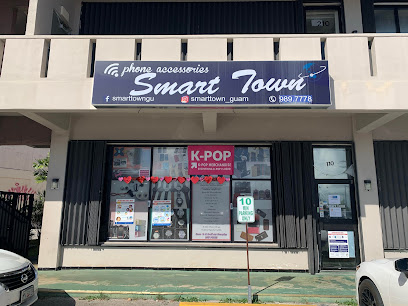
JP Store
Discover the latest in Guam fashion at JP Store, your one-stop clothing destination for trendy apparel and unique local styles.
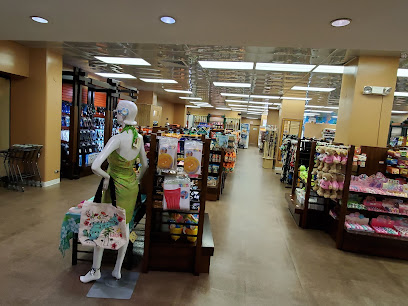
Intentions conscious soul & body care (former Medusa)
Discover Intentions in Upper Tumon, Guam – your go-to spot for artisanal candles, sustainable clothing, and conscious body care products.
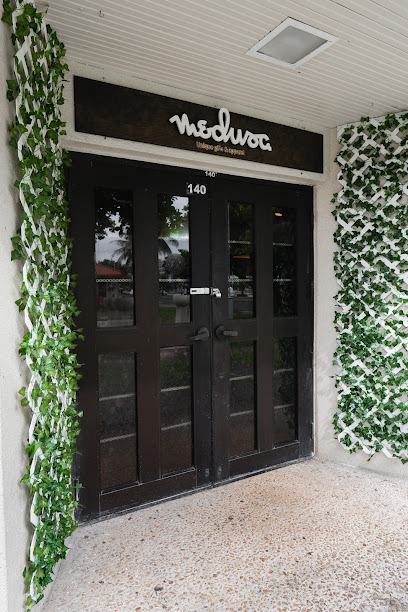
Velani Jewelry - Tamuning Guam Location
Explore the exquisite selection of fine jewelry at Velani Jewelry in Tumon, Guam, where elegance meets local craftsmanship.
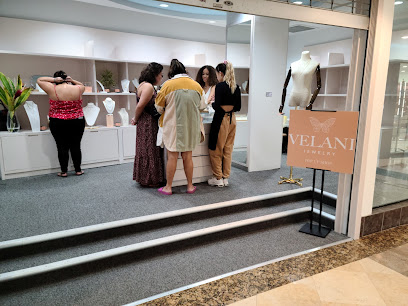
Adult Specialty Shop
Explore the vibrant offerings of Guam's Adult Specialty Shop, where unique gifts and local culture meet for an unforgettable shopping experience.

American Gift Shop
Explore the American Gift Shop in Tumon for unique souvenirs and local crafts that capture the spirit of Guam.
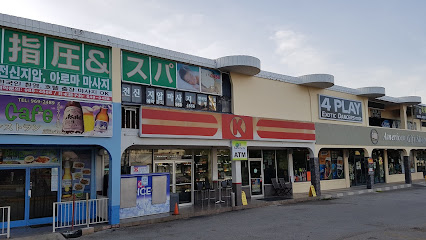
Dare Me Boutique
Discover unique gifts and local craftsmanship at Dare Me Boutique, your ultimate shopping destination in Tumon, Guam.

Essential bars & hidden hideouts
Tree Bar
Discover the vibrant Tree Bar at Hilton Guam Resort, offering stunning ocean views, refreshing cocktails, and a lively tropical atmosphere.
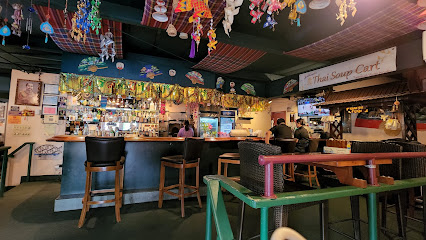
The Guam Brewery Taphouse
Experience the vibrant local craft beer scene at The Guam Brewery Taphouse, your go-to spot in Tumon for delicious brews and lively events.
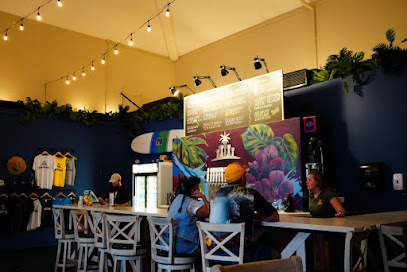
Old Traditions
Discover the lively energy and local flavor of Old Traditions, a bar that embodies the spirit of Guam's nightlife in Tumon.
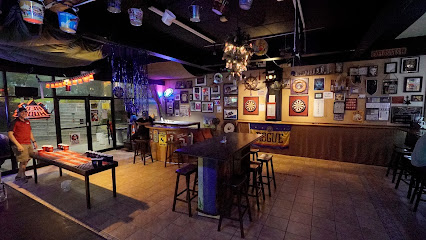
Mins Bar Guam | Music Karaoke Box and Shot Bar | Tumon Guam
Discover the ultimate karaoke experience at Mins Bar Guam, where nights are filled with music, dancing, and vibrant nightlife in Tumon.
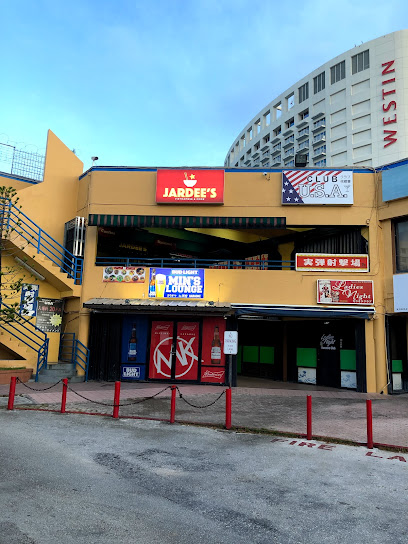
Livehouse
Discover the vibrant nightlife at Livehouse, Tumon's premier bar offering exquisite cocktails and live music in a lively atmosphere.
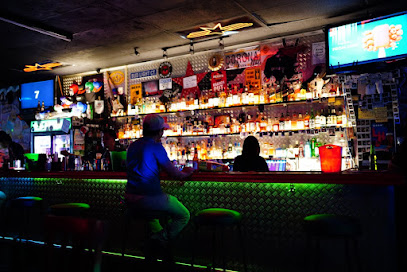
Lava Lounge
Experience unforgettable nights of music, laughter, and local culture at Lava Lounge, Guam's top karaoke bar and lounge.
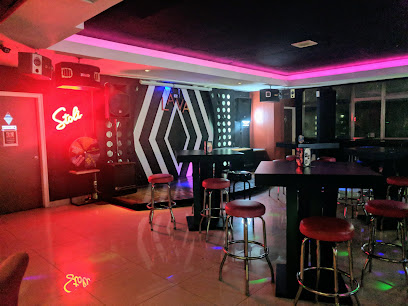
Boonies, Tumon Guam
Discover the vibrant flavors of Guam at Boonies – where great food meets an unforgettable atmosphere in Tumon.
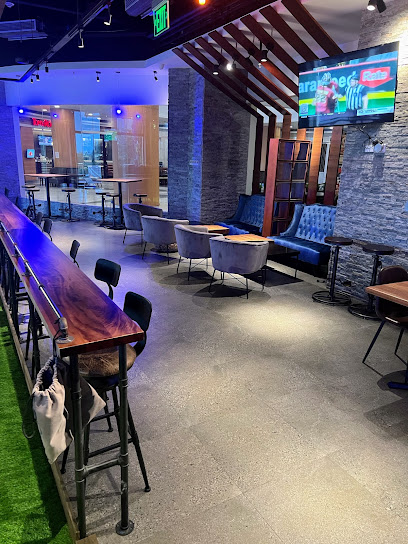
Melting Point, Guam
Indulge in exquisite cocktails and vibrant nightlife at Melting Point, the premier bar and lounge in Tumon, Guam.
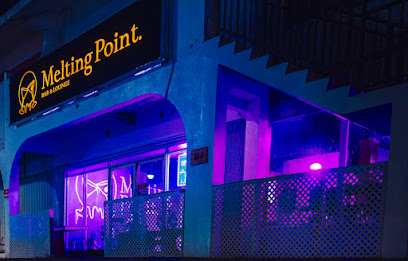
Infinity Bar
Experience the perfect blend of relaxation and vibrant nightlife at Infinity Bar, Guam's tropical oasis with stunning ocean views and refreshing cocktails.
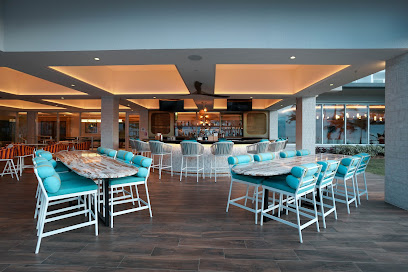
O' Beer Time
Experience the vibrant nightlife at O' Beer Time, Guam's favorite karaoke bar where every night is a celebration of music and friendship.
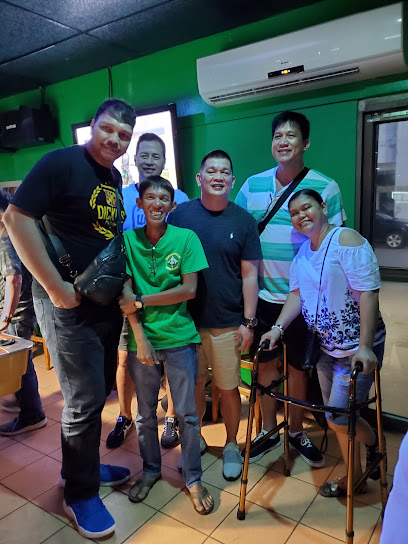
Local Phrases
-
- HelloHåfa adai
[HAH-fah ah-DYE] - GoodbyeAdios
[AH-dyos] - YesHao
[HOW] - NoTi
[TEE] - Please/You're welcomeFanatånu
[FAH-nah-TAH-noo] - Thank youSi Yu'os Ma'åse
[SEE YOO-oss mah-AH-seh] - Excuse me/SorryDispensa
[dees-PEN-sah] - How are you?Cómo estás?
[KOH-moh ess-TAHS?] - Fine. And you?Åndai. Ya bai hu?
[AHN-dye. YAH by hu?] - Do you speak English?Kao esta i lengguahe i inglés?
[KOW ESS-tah ee LENG-gwah-hey ee een-GLEHS?] - I don't understandTi hu tungo' iyo
[TEE hoo TOONG-oh EE-yoh]
- HelloHåfa adai
-
- I'd like to see the menu, pleaseTaitai hu gösu i menu, fa'åsen
[TAH-ee-tah-ee hoo GOH-soo ee MEH-noo, fah-AH-sehn] - I don't eat meatTi hu manngi karne
[TEE hoo MAHN-gee KAR-neh] - Cheers!Biba!
[BEE-bah] - I would like to pay, pleaseTaitai hu fa'gåi, fa'åsen
[TAH-ee-tah-ee hoo fah-GAH-ee, fah-AH-sehn]
- I'd like to see the menu, pleaseTaitai hu gösu i menu, fa'åsen
-
- Help!Ayudame!
[ah-yoo-DAH-meh] - Go away!Låo!
[LAH-oh] - Call the Police!Llama i Polisia!
[YAH-mah ee poh-LEE-see-ah] - Call a doctor!Llama i dotå!
[YAH-mah ee doh-TAH] - I'm lostTi hu pérdi
[TEE hoo PEHR-dee] - I'm illTi hu manjåña
[TEE hoo mahn-HAH-nyah]
- Help!Ayudame!
-
- I'd like to buy...Taitai hu kömprå...
[TAH-ee-tah-ee hoo KOM-prah] - I'm just lookingTi hu sali
[TEE hoo SAH-lee] - How much is it?Kåhåo masångane?
[KAH-hah-oh mah-SANG-gah-neh] - That's too expensiveAñe' na mäsångane
[AH-nyeh nah mah-SANG-gah-neh] - Can you lower the price?Åyúmåsi kumuentos?
[AH-yoo-MAH-see koo-mwehn-tohs]
- I'd like to buy...Taitai hu kömprå...
-
- What time is it?Kåhåo i tiempu?
[KAH-hah-oh ee TYEHM-pooh] - It's one o'clockÅpat na
[AH-paht nah] - Half past (10)Mitad despues di dies
[MEE-tahd dehs-PWEHS dee DEE-ehs] - MorningGåiåsai
[GAH-ee-sah-ee] - AfternoonKåntiåsai
[KAHN-tee-ah-sah-ee] - EveningKålenai
[KAH-leh-nyah-ee] - YesterdayKåmyånta
[KAHM-yahn-tah] - TodayHåyi
[HAH-yee] - TomorrowBåba
[BAH-bah] - 1Uno
[OO-noh] - 2Dos
[Dohs] - 3Tres
[TREHS] - 4Kwatro
[KWAH-troh] - 5Sinko
[SIN-koh] - 6Seis
[SAYCE] - 7Siete
[SYEH-teh] - 8Ocho
[OH-choh] - 9Nueve
[NWEE-veh] - 10Diez
[DEE-ehs]
- What time is it?Kåhåo i tiempu?
-
- Where's a/the...?U na...
[OO nah] - What's the address?Kåhåo i direksion?
[KAH-hah-oh ee dee-rehk-SYON] - Can you show me (on the map)?Åyúmåsi ku enseña yu (sångane mapå)?
[AH-yoo-MAH-see koo ehn-SEHN-yah yoo (mah-SANG-gah-neh mah-PAH)] - When's the next (bus)?Kåhåo i siguiente guagua?
[KAH-hah-oh ee see-GWEE-ehn-teh GWAH-gwah] - A ticket (to ....)Un billete (para ....)
[OON bee-YEH-teh (PAH-rah)]
- Where's a/the...?U na...
History of Tamuning
-
Before the arrival of European colonizers, the area now known as Tamuning was inhabited by the Chamorro people. They developed a rich culture characterized by their unique customs, language, and a deep connection to the land and sea. The indigenous population engaged in fishing, farming, and trade, developing a lifestyle that was sustainable and intertwined with the natural environment, with significant sites like *Latte Stones* marking their settlements.
-
In 1565, Guam was claimed by Spain, leading to significant changes in Tamuning and the greater Tumon area. The Spanish established Catholic missions, introducing Christianity to the Chamorro people. This period saw the construction of churches and the incorporation of Spanish customs into local traditions, creating a blend of cultures that still influences Guam today.
-
During World War II, Guam was occupied by Japanese forces from 1941 until the U.S. liberation in 1944. Tamuning experienced considerable destruction during the conflict, which left lasting scars on the community. The aftermath of the war prompted a rebuilding phase that reshaped the infrastructure and demographics of the area, leading to an influx of American military personnel and their families.
-
The post-war period marked a significant transformation for Tamuning, as it became a key area for the burgeoning tourism industry in Guam. The establishment of hotels, resorts, and shopping centers catered to visitors from around the world, particularly from Japan and the United States. This economic shift not only revitalized Tamuning but also contributed to the global perception of Guam as a premier tourist destination.
-
In recent decades, there has been a concerted effort in Tamuning to preserve and promote Chamorro culture and history. Festivals, cultural events, and museums showcasing traditional arts, crafts, and practices have become more prominent, allowing both locals and visitors to engage with the island's rich heritage. This cultural renaissance is vital in maintaining the identity of Tamuning amidst the ongoing influences of modern tourism.
Tamuning Essentials
-
Tamuning is easily accessible from other neighborhoods in Tumon. If you are staying in Tumon, a short taxi ride or a rental car can take you to Tamuning in about 10 minutes. Public buses also operate in the area, connecting major hotels in Tumon to Tamuning. The nearest airport is Antonio B. Won Pat International Airport, just a few miles away, which makes it convenient for travelers arriving by air.
-
Tamuning is a compact area, and the best way to explore is on foot. For longer distances, local buses and taxis are available. While Guam does not have a train system, bike rentals are popular—many hotels offer bicycles for guests to use. Additionally, ride-sharing services are operational in the area, providing another convenient option for transportation.
-
Tamuning is generally safe for tourists. However, it is advisable to stay vigilant, especially in secluded areas or at night. High-crime areas in Guam tend to be outside tourist zones, but it is wise to avoid poorly lit streets after dark and to keep valuables secure. Always be cautious in crowded places to prevent theft.
-
In case of an emergency, dial 911 for police, fire, or medical assistance. There are medical facilities and urgent care centers in Tamuning, such as the Guam Memorial Hospital. It's advisable to have travel insurance that covers emergencies. Pharmacies are available for over-the-counter medications and basic health needs.
-
Fashion: Do wear light, breathable clothing suitable for the tropical climate. Don't wear swimwear away from the beach. Religion: Do respect local customs, particularly in churches. Don't take photos where prohibited. Public Transport: Do give up your seat for the elderly. Don't talk loudly or eat on public transport. Greetings: Do greet with a smile and a friendly wave. Don't interrupt ongoing conversations. Eating & Drinking: Do try local dishes like red rice and kelaguen. Don't waste food, as it's considered disrespectful.
-
To experience Tamuning like a local, visit the Chamorro Village Night Market held every Wednesday, where you can enjoy local foods and crafts. Engage with local vendors for authentic cultural experiences. Don't miss out on the beautiful beaches like Ypao Beach Park, perfect for swimming and snorkeling. Additionally, learn a few phrases in Chamorro to connect with locals, as they appreciate the effort.
Nearby Cities to Tamuning
-
Things To Do in Tamuning
-
Things To Do in Hagåtña
-
Things To Do in Sinajana
-
Things To Do in Dededo
-
Things To Do in Agana Heights
-
Things To Do in Mangilao
-
Things To Do in Yigo
-
Things To Do in Santa Rita
-
Things To Do in Agat
-
Things To Do in Koblerville
-
Things To Do in Saipan
-
Things To Do in Kagman
-
Things To Do in Garapan
-
Things To Do in Capital Hill
-
Things To Do in San Roque











